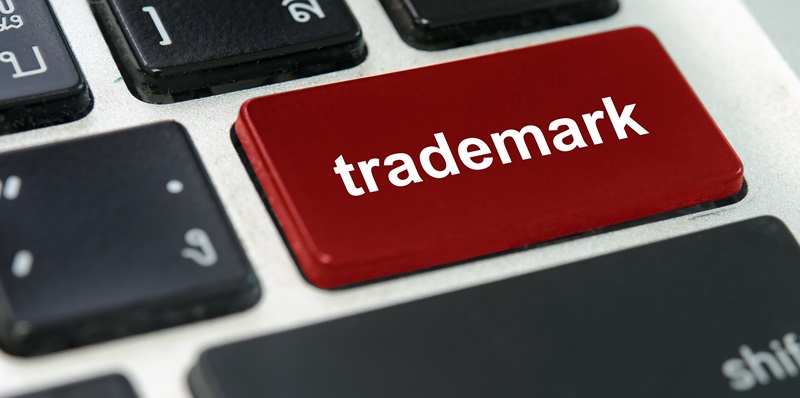In the ever-evolving tapestry of the corporate world, trademarks emerge as the quintessential fabric that weaves together brand identity, consumer loyalty, and marketplace distinction. These marks do not merely signal product origin; they encapsulate the trust and rapport that businesses have cultivated with their patrons. In light of this, brand protection has ascended to a critical priority, one that involves safeguarding the unique symbols that represent a company’s hard-earned reputation from the insidious reach of counterfeiters and infringers. With the digital age ushering in sophisticated challenges like online piracy, the role of blockchain technology has crystallized as a beacon of innovation, signaling a new epoch in trademark security bolstered by enhanced reliability and unprecedented transparency.
Elevating Trademark Trust with Blockchain
Blockchain’s immutable nature has ushered in an unparalleled level of security in maintaining product authenticity, marking a seminal advancement in the combat against counterfeiting. By affixing a discrete, verifiable identifier to merchandise, this avant-garde technology guarantees that users can promptly ascertain the legitimacy of goods, instilling unwavering confidence in the sanctity of a brand. This innovation not only provides peace of mind to consumers, but by eradicating the need for middlemen, also paves the way for more streamlined transactions between businesses and buyers. In doing so, blockchain provides fertile ground for the development of more symbiotic relationships, ultimately fortifying the trust that is so vital to a brand’s longevity.
The decentralized ledger at the heart of blockchain technology serves as the steadfast custodian of transaction records, impervious to manipulation and reassuringly transparent. The consequence is a monumental contraction in administrative burdens, harmonizing the interconnected channels of manufacture, distribution, and consumption. As the custodian of truth, blockchain wields its incorruptible ledger to safeguard brands in a manner previously unattainable, forging new paradigms of trust in a marketplace increasingly fraught with the specter of imitation.
Supply Chain Transparency through Immutable Ledgers
In the dynamic realm of global trade, the supply chain is the conduit of verified origins, with blockchain standing guard. This immutable ledger details a product’s journey, from creation to consumer, with precision, allowing brands to detect discrepancies and combat counterfeits that flourish in the shadows.
Blockchain’s role revolutionizes supply chain transparency, ensuring product authenticity while protecting consumer health. With a transparent trail, companies can chase down counterfeits, protect their image, and bolster consumer trust. It’s this blend of safety and brand integrity that fortifies a company’s position in the competitive marketplace, ensuring its reputation remains intact. Through blockchain, we witness a robust defense against the counterfeit menace, which safeguards both the consumer and the brand.
Smart Contracts for Automated Brand Protection
The fusion of blockchain with smart contracts is akin to endowing trademark security with newfound autonomy, an approach that circumvents the inertia of manual oversight. Automatically triggered when predefined conditions are met, smart contracts represent a paradigmatic leap in licensing compliance and infringement mitigation. Brands can now deploy these digital sentinels to oversee the integrity of their trademarks, enforcing the sanctity of their intellectual properties with the unyielding precision afforded by technology.
Smart contracts offer a sagacious path towards seamless brand protection—an algorithmic shield that deflects unauthorized use and facilitates the seamless distribution of licensing rights. As transactions and agreements are imbued with self-governing functionality, companies find solace in blockchain’s staunch oversight. The result is a streamlined approach to managing digital rights and trademark enforcement, carving out a new frontier in the perennial battle for authenticity and brand reputation.
Overcoming Scalability and Integration Hurdles
Integrating blockchain into current business infrastructures presents challenges, such as scalability and slow transaction times. These barriers can be acute for small businesses, who may view the required investment and system overhaul as overly burdensome. However, considering the potential for brand damage and losses from counterfeiting, the benefits of blockchain for trademark protection could outweigh its obstacles.
Adopting blockchain is a complex process that involves significant technical and systemic adjustments. Despite the difficulties, companies that successfully incorporate blockchain could greatly enhance their security and efficiency. This advancement holds the potential to be a game-changer, providing a competitive edge and much-needed protection against market infringement in a highly competitive environment.
Navigating Regulatory Complexity in Brand Protection
Integrating blockchain into trademark law is a complex voyage through dense regulation. For businesses utilizing this technology, it’s crucial to navigate these waters with care, maintaining compliance with evolving legal standards. As blockchain promises to serve as a bulwark against trademark infringement, understanding its legal interplay is as critical as the technology itself.
The journey to embed blockchain within the fabric of brand protection illustrates the broader dynamics between innovation and law. As consensus is sought between government and commerce, concerted efforts are forging a space where blockchain can thrive as a beacon of trustworthiness. As legal frameworks adjust to the advance of technology, the vision of trademarks secured by blockchain’s immutable records is gradually becoming concrete reality.

